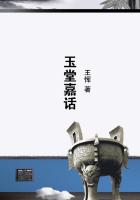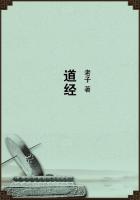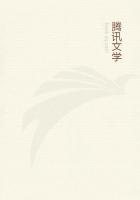"You ought to be ashamed of yourself!" said the old woman."I have fed you well, and taken care of you ever since you were small and blind, and could only crawl about and squeal a little, instead of howling as you do now.When you grew old, I said you were a good dog.You were strong and gentle when the load was put on your back, and you never ran among the feet of the horses when we were all traveling together over the prairie.But you had a bad heart!
Whenever a rabbit jumped out of the bushes, you were always the first to run after him and lead away all the other dogs behind you.You ought to have known that it was very dangerous to act so.When you had got far out on the prairie, and no one was near to help you, perhaps a wolf would jump out of the ravine; and then what could you do? You would certainly have been killed, for no dog can fight well with a load on his back.Only three days ago you ran off in that way, and turned over the bag of wooden pins with which I used to fasten up the front of the lodge.Look up there, and you will see that it is all flapping open.And now to-night you have stolen a great piece of fat meat which was roasting before the fire for my children.I tell you, you have a bad heart, and you must die!"So saying, the squaw went into the lodge, and coming out with a large stone mallet, killed the unfortunate dog at one blow.This speech is worthy of notice as illustrating a curious characteristic of the Indians: the ascribing intelligence and a power of understanding speech to the inferior animals, to whom, indeed, according to many of their traditions, they are linked in close affinity, and they even claim the honor of a lineal descent from bears, wolves, deer, or tortoises.
As it grew late, and the crowded population began to disappear, I too walked across the village to the lodge of my host, Kongra-Tonga.As I entered I saw him, by the flickering blaze of the fire in the center, reclining half asleep in his usual place.His couch was by no means an uncomfortable one.It consisted of soft buffalo robes laid together on the ground, and a pillow made of whitened deerskin stuffed with feathers and ornamented with beads.At his back was a light framework of poles and slender reeds, against which he could lean with ease when in a sitting posture; and at the top of it, just above his head, his bow and quiver were hanging.His squaw, a laughing, broad-faced woman, apparently had not yet completed her domestic arrangements, for she was bustling about the lodge, pulling over the utensils and the bales of dried meats that were ranged carefully round it.Unhappily, she and her partner were not the only tenants of the dwelling, for half a dozen children were scattered about, sleeping in every imaginable posture.My saddle was in its place at the head of the lodge and a buffalo robe was spread on the ground before it.Wrapping myself in my blanket I lay down, but had I not been extremely fatigued the noise in the next lodge would have prevented my sleeping.There was the monotonous thumping of the Indian drum, mixed with occasional sharp yells, and a chorus chanted by twenty voices.A grand scene of gambling was going forward with all the appropriate formalities.The players were staking on the chance issue of the game their ornaments, their horses, and as the excitement rose, their garments, and even their weapons, for desperate gambling is not confined to the hells of Paris.The men of the plains and the forests no less resort to it as a violent but grateful relief to the tedious monotony of their lives, which alternate between fierce excitement and listless inaction.I fell asleep with the dull notes of the drum still sounding on my ear, but these furious orgies lasted without intermission till daylight.Iwas soon awakened by one of the children crawling over me, while another larger one was tugging at my blanket and nestling himself in a very disagreeable proximity.I immediately repelled these advances by punching the heads of these miniature savages with a short stick which I always kept by me for the purpose; and as sleeping half the day and eating much more than is good for them makes them extremely restless, this operation usually had to be repeated four or five times in the course of the night.My host himself was the author of another most formidable annoyance.All these Indians, and he among the rest, think themselves bound to the constant performance of certain acts as the condition on which their success in life depends, whether in war, love, hunting, or any other employment.These "medicines," as they are called in that country, which are usually communicated in dreams, are often absurd enough.Some Indians will strike the butt of the pipe against the ground every time they smoke;others will insist that everything they say shall be interpreted by contraries; and Shaw once met an old man who conceived that all would be lost unless he compelled every white man he met to drink a bowl of cold water.My host was particularly unfortunate in his allotment.

